Families raise fears over vulnerable patients leaving wards
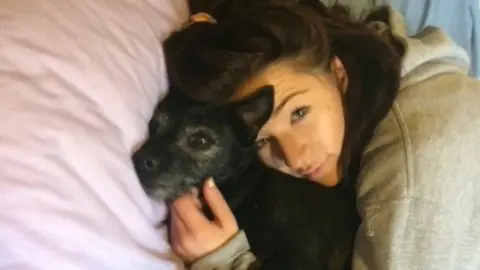 BBC
BBCGrieving families have urged the NHS to do more to stop vulnerable patients wandering off from wards and putting themselves in danger.
BBC Scotland has spoken to the families of two people with mental health issues who died after leaving their treatment without permission.
They want action - and to know why their relatives were not stopped.
The Scottish government says there is a balance to be struck between protecting patients and the right to liberty.
A BBC investigation has learned that there were more than 6,000 cases of people being reported missing from all NHS facilities in the last five years.
However, only one of the country's health boards was able to provide figures for the number of mental health patients who had gone missing.
The cases include Jade McGrath, from Carrbridge near Aviemore, who took her own life after going missing from New Craigs Hospital in Inverness in November 2018.
An internal review by NHS Highlands found a catalogue of failures led to the 19-year-old's death, which took place 11 days after she left an unlocked ward without permission.
Her mother Samantha said Jade had been allowed to walk out of the hospital unchallenged, even though she had spoken about suicide and hallucinating.
"They didn't call police until 45 minutes after she vanished. That is unforgivable," she said.
"There are hundreds of families in the same position as us.
"The NHS is not doing enough. There is not enough compassion or funding for these vital mental health services."
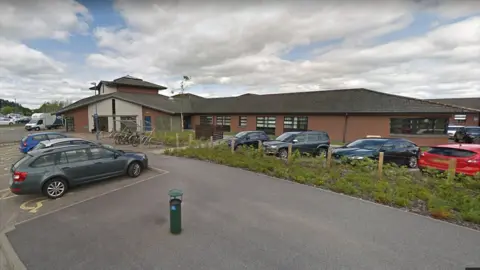 Google
GoogleThe investigation into Jade's death found that the hospital failed to carry out a risk assessment and failed to include a missing persons report in her file.
It also found staff did not monitor Jade as closely as they should have despite warnings she appeared suicidal.
As well as an apology, the family have received a six-figure compensation payout.
Jayne Crawford, of Thompsons solicitors, who represented the family, said their only route to justice was a civil claim.
She said: "It is disappointing that it took so long and the raising of court proceedings for the NHS board to formally issue their apology, inevitably extending the family's anguish."
NHS Highland said it was sorry that it did not meet the standards that should have been expected in Jade's case.
It said a review had been carried out in an attempt to learn lessons, and that it was working to deliver on the key recommendations.
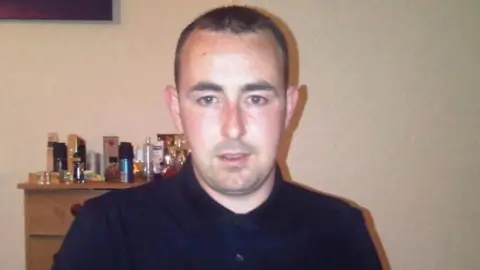
Jade's case is not the only one with tragic consequences.
Barry McCullagh, from Castlemilk in Glasgow, was taken to Royal Alexandra Hospital in Paisley last October after his family became concerned about his erratic behaviour, which included claiming he was hearing voices.
He was sedated, and when he asked to go for a cigarette later he was escorted by medical staff.
Later that evening, the 40-year-old again asked to go outside - but this time he went alone.
Barry wasn't seen alive again.
His body was found in a nearby river in March, but a cause of death is yet to be established.
During the hunt for Barry, his mother Liz also lost another son, Brian, following a battle with illness.
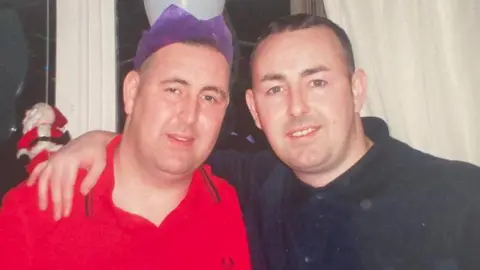
Liz said she held the hospital responsible for Barry's death.
"I put my son in an ambulance and thought he would be going to get better, but he ended up dead," she said.
"The way he was acting he should never have been allowed out of the hospital without supervision."
Liz said the police search had been delayed because the NHS initially reported Barry missing, then told police they had no concerns about him.
"After I learned the hospital had cancelled a missing person report I filed one myself, but that caused delays," added Liz.
"He had no jacket or wallet and knew no-one in the area.
"I blame them. I want answers but also for the hospitals to do more for people like Barry."
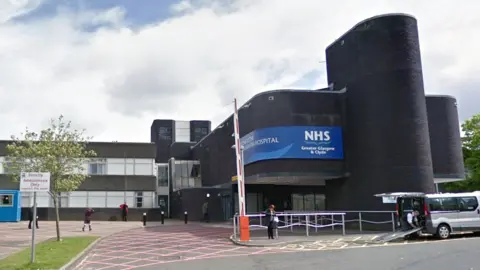 Google
GoogleA spokesperson for NHS Greater Glasgow and Clyde sent its "sincere condolences" to his family.
"NHS Greater Glasgow and Clyde staff work tirelessly to ensure patients receive the highest standard of care possible," it said.
"Without proper legal authority hospital staff cannot curtail a patient's movements."
Maree Todd, the Scottish government's minister for social care, mental wellbeing and sport, extended her "heartfelt sympathies" to the families.
"The safety of patients is a priority," she said.
"Staff need to carefully balance the right for patients to be protected together with their right for liberty. It is a difficult balance."
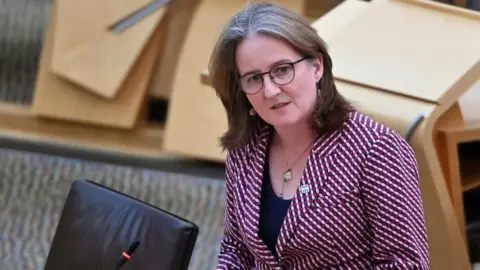 Getty Images
Getty ImagesFew mental health patients are detained for treatment against their wishes and kept under lock and key.
Our investigation asked all Scotland's health boards to supply details about missing mental health patients, but just one - NHS Tayside - was able to supply figures.
It said they accounted for the majority of its 320 cases.
Only one health board said no mental health patients had been able to leave its wards without permission.
NHS Lothian said that since 2014, the majority of its wards for mental health patients have had locked doors to stop people walking in and out.
A spokesperson said: "People are at their most vulnerable when unwell and need to feel safe, secure and supported.
"They may have a history of trauma, so we need to be sure we monitor who comes in to the ward and that people are safe while in our care."
Left without permission
Our investigation also asked for the total number of missing patients in the last five years and how many times police were called to help.
We received figures from all health boards except Greater Glasgow and Clyde, which said this information was not recorded.
In the other areas, patients had left NHS facilities 6,493 times in the last five years. Police were called at least 1,807 times.
The Mental Welfare Commission said that in the majority of cases, clinical teams would consider whether the missing patient was able to make an informed and competent choice about leaving before deciding what action to take.
It said cases were only referred to them if someone had left without permission after being detained.
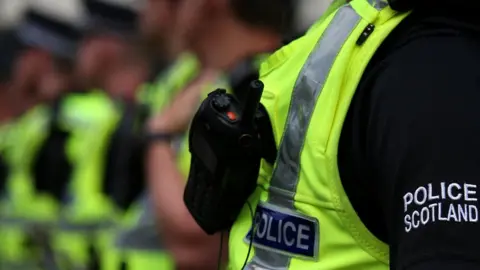 PA Media
PA MediaThe body that represents rank and file police officers said tracing missing patients could be a drain on resources.
David Threadgold of the Scottish Police Federation said: "They create a significant resource and usually remove an officer from other duties."
Police Scotland said it had no plans to follow the Metropolitan Police, which says it will stop attending 999 calls linked to mental health incidents from September.
The Met said this would allow police to focus on crime and its victims rather than dealing with people who need expert medical help.
Assistant Chief Constable Gary Ritchie said: "Police Scotland differs from other police services because the law gives equal status to our mission of improving the safety and wellbeing of people, places and communities, alongside the more traditional aspects of policing - protection and safety.
"We will therefore continue to respond to people in crisis and who need help."
